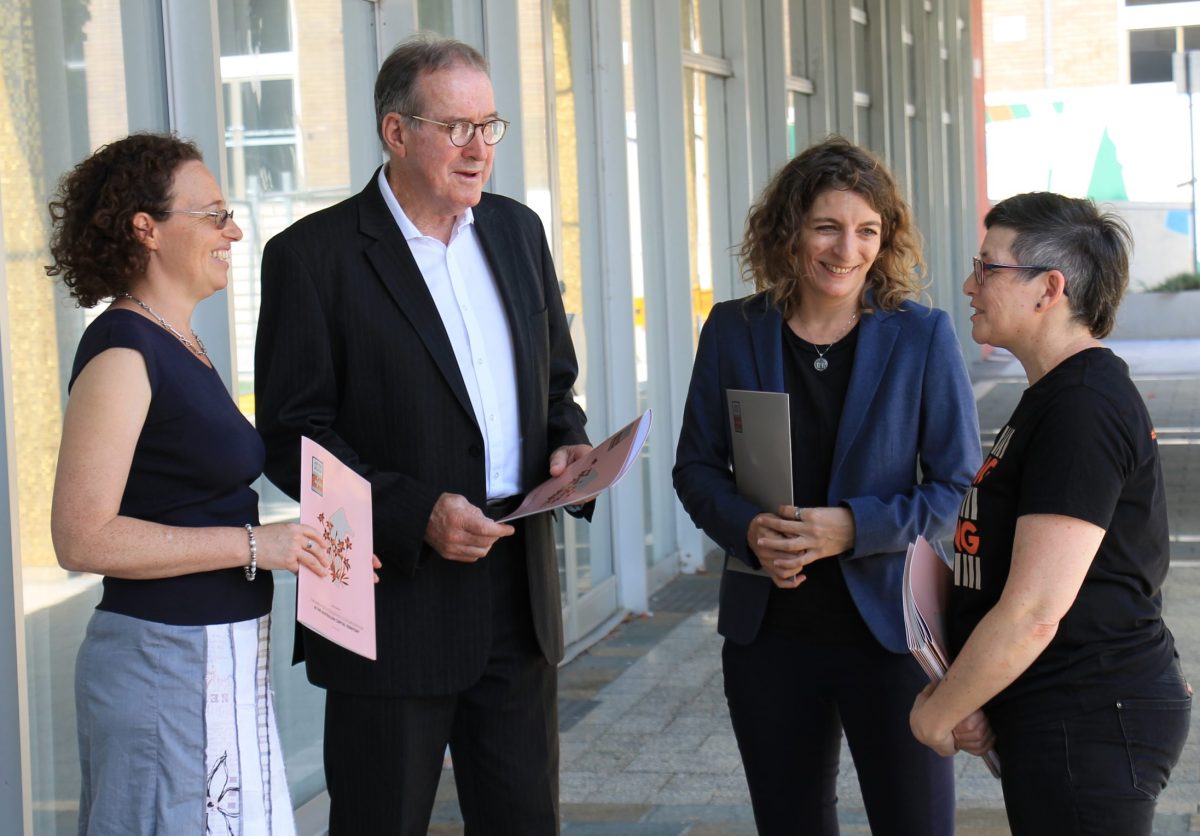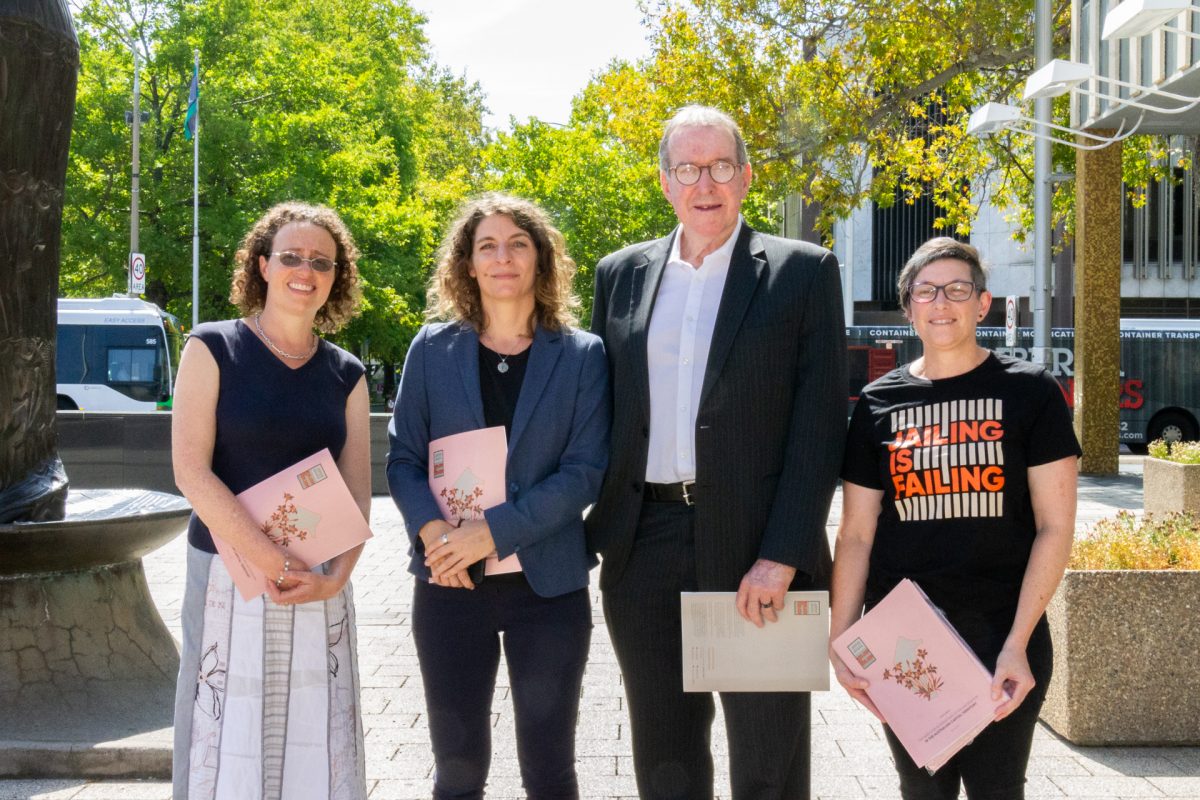
Supporters of the Justice Reform Initiative Professor Lorana Bartels, Robert Tickner, Dr Mindy Sotiri and the JRI’s ACT campaign coordinator Indra Esguerra speak at the launch of their report on Wednesday. Photo: Albert McKnight.
The chair of a justice alliance said the fact the ACT had the highest rate of people returning to prison in Australia, with 80 per cent of all the Territory’s inmates having previously spent time in custody, was “crazy”.
“That’s the cycle of repeat offending that we’ve got to break,” Justice Reform Initiative (JRI) chair Robert Tickner said when launching the report last week.
The JRI’s new report says despite having the lowest incarceration rates in Australia and a promising reform agenda, the ACT’s current approach faces challenges in breaking the prison cycle.
To tackle the problem, it has called on the ACT Government to establish an annual $20 million fund to help boost the impact of existing community-led programs and make them more accessible.
“We argue in this report that if we were to make the kinds of investment in the community sector that we have made into incarceration, we would have very different outcomes and we would genuinely be able to break the cycle of reoffending,” JRI executive director Dr Mindy Sotiri said.
“The Justice Reform Initiative has launched a report today that says jailing is failing.
“It’s failing to protect the community, it’s failing to address the drivers of why it is that people go to prison and it’s failing to ultimately keep the community safe.”
She said the research showed prison “doesn’t work” and was “incredibly expensive”, costing $120 million to lock up adults and children each year in the ACT.
The report says while First Nations people make up only about two per cent of the ACT population, they account for 27 per cent of those incarcerated.
Overall in 2023, there was an average of 375 adults imprisoned in the ACT each night at a cost of about $543 each.
Dr Sotiri said the JRI believed lawbreakers should “absolutely” be held accountable for their crimes.
But she said 30 years of evidence from around Australia showed “prison is not the place to address the reasons why people are committing crime in the first place”.
The report outlined a range of alternatives, she said. Bail support programs made a significant difference in increasing compliance with bail conditions, properly-funded post-release programs could reduce the risk of recidivism by 60 per cent, while there were also alternative police response models.

The Justice Reform Initiative is supported by more than 120 eminent Australians, including Professor Lorana Bartels, Dr Mindy Sotiri, Robert Tickner and Indra Esguerra. Photo: Albert McKnight.
Dr Sotiri said the JRI was having “great conversations” with those in the ACT’s parliament about the report.
“What we have noted in the report is that there is a real appetite in the ACT to make change,” she said.
“The ACT has the capacity to be world leading, and certainly nation leading, when it comes to reducing incarceration.”
Mr Tickner, a former minister for Aboriginal Affairs, said the evidence showed there were practical, common-sense interventions that the not-for-profit sector could implement to “break that cycle of repeat offending”.
“People coming out of prison, of course, come out with this terrible stigma on their forehead; they’ve been to prison. Life is so hard when you come out of prison,” he said.
“One of the reasons people end up going into contact with the criminal justice system is because they are often alone, they’re often marginalised, they’re often struggling with a disability or a disadvantage.
“That’s why the enormous strength of the not-for-profit sector in Canberra can really set the pace for the nation on these issues.”
Speaking at the launch of the report on Wednesday, Minister for Corrections and Justice Health Emma Davidson agreed “jailing is failing”.
“Even a short sentence of imprisonment or period on remand can be enough for someone to lose their home, family or job,” she said.
“Picking up the pieces and rebuilding a stable life after spending time in prison takes time, effort and support from many people and services that need to work in an integrated way.”
Ms Davidson acknowledged more needed to be done and appreciated JRI’s “innovative and well-researched recommendations”.
The JRI is a multi-partisan alliance supported by more than 120 eminent Australians, including First Nations leaders; former governors-general, members of Parliament and judges; as well as academics.













